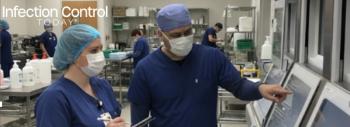
Cardinal Health Pulls 2.9 Million Presource Procedural Packs
The company is trying to find ways to keep the move from affecting patients and providers.
Following on the heels of its
The voluntary action includes about 2.5 million procedure packs that were not separated from the affected gown by inner, sealed packaging. In addition, the company is pulling 374,794 procedure packs that were separated from the affected gowns by the packaging because those packs can be over-labeled, which allows the components within the inner, sealed packages to be used after the gown is thrown out.
Cardinal Health officials caution that all components, including the gowns, should be removed and discarded and they don’t have to go far to get to most of those packs; 357,127 remain in the company’s inventory, thanks to the voluntary hold the it placed on them when the gowns were recalled.
Mike Kaufmann, CEO of Cardinal Health, said in the press release that “we understand the gravity of this situation and the disruptions to the healthcare system that will impact patient care.”
The company noted when the situation first came to public light how closely it is working with the US Food and Drug Administration (FDA) to make things right. That started when the company, while in discussion with the FDA, placed a
“We are fully committed to making this right, and we are doing everything we can to ensure it never happens again,” Kaufmann said.
It’s going to hurt.
The company expects to lose $96 million in the second quarter this year. “This charge represents our best estimate of costs for the recall, including inventory write-offs and other remediation costs, such as costs to replace recalled products,” the company said in the press release. “It is possible that the amount of ultimate loss may differ materially from this accrual.”
The packs can be customized to fit a customer’s needs and can contain a variety of medical items including 1 or more gowns. Cardinal Health intends to notify its customers Monday with instructions on how to handle the affected procedural packs.
The problems with both the gowns and the procedural packs stem from a Cardinal Health vendor-Siyang Holymed of China-producing the products at sites that were not approved by either Cardinal Health or the FDA. Last December, Cardinal Health found out that the products were being manufactured in open environments, allowing exposure to air particulates and other contaminants. The site also did not provide hand sanitation, and workers were seen eating in the production area.
In addition to the recalls, the company is:
· Increasing its manufacturing production of similar and replacement products;
· Offering more protective AAMI Level 4 gowns to help bridge the supply gap;
· Working to identify alternatives-including in many cases working with industry partners who offer comparable products; and
· Mobilizing employees from all parts of the company to work directly with health care providers to replace gowns and procedure packs.
In addition, Cardinal Health is enlisting third-party experts to conduct a review of quality assurance processes. The committee will be chaired by John Weiland, a former CEO of Cardinal Health.
Newsletter
Stay prepared and protected with Infection Control Today's newsletter, delivering essential updates, best practices, and expert insights for infection preventionists.




